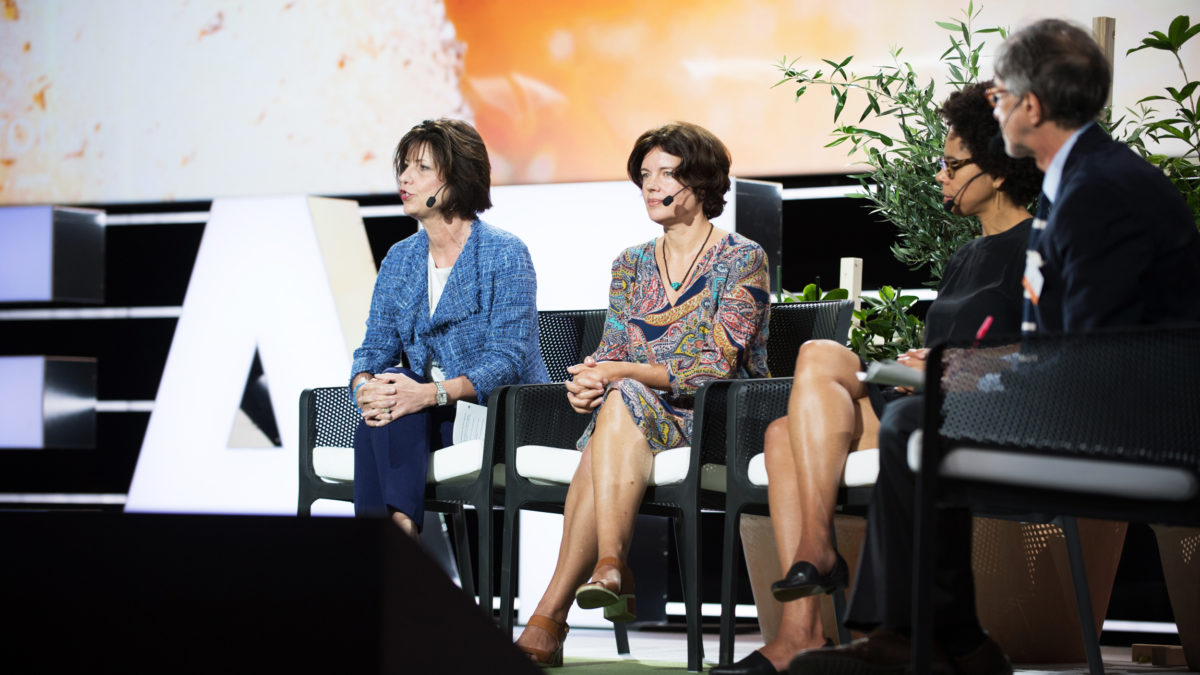Producing more food without taking more land and degrading our oceans. Is it possible?
Yes, it is, but there is no silver bullet, experts warn.
It is a daunting scenario: In 2050, the world will have to feed a hungry population of almost 10 billion people, many of them living in large urban areas. Any attempt at feeding them all will dramatically affect land areas and marine environments. Or will it? An expert panel consisting of Dr. Ayana Johnson of Ocean Collectiv, Ruth Kimmelshue, Cargill and Izabella Koziell from the International Water Management Institute, are cautious but optimistic about such scenario. Technological development, aquaculture, better funding mechanisms for new initiatives and small-scale producers, and a stronger focus on women’s struggle at local level are some of the areas that can make the scenario realistic. But there are no silver bullets: new technology should not be promoted at the expense of older technology that has proven efficient, aquaculture comes with a range of challenges and better funding should also include the elimination of subsidies for industrial fishing. Finally, any chance of a positive future hinges on a significant increase in protected areas from fishing. Currently it stands at only 2 percent globally.
We do have solutions, there are a lot of them, but policies and economies are not quite right.Izabella Koziell
The panel debate was moderated by Corby Kummer, Food Writer, The Atlantic.
Panel:
Izabella Koziell, Director, Water, Land, Ecosystems – International Water Management Institute
Ruth Kimmelshue, Corporate Senior Vice President, Business Operations and Supply Chain; Sustainability, Cargill
Dr. Ayana Elizabeth Johnson, Founder and President, Ocean Collectiv
